International Network of Engaged Buddhists (INEB) celebrates 20th anniversary
"The International Network of Engaged Buddhists (INEB) celebrated its 20th anniversary November 9th-17th at the at Chiang Mai, Thailand, November 9th-16th with a variety of activities. Over the last few years links with INEB have grown; Lokamitra is at present a member of their advisory committee, while Mangesh Dahiwale is a member of their executive committee. INEB was founded by Sulak Sivaraksa, who at the age of 76, is beginning to withdraw from the front line of INEB activities.
"The conference therefore also marked this period of transition with the formation of larger and more diverse advisory and executive committees, as well as a secretariat more able to coordinate the fast growing network.
Sangha and Kalyanamitra
"The celebrations started with a three day retreat led by Dhammachari Lokamitra. This was attended by about 100 participants from 16 different countries. The participants included almost 30 bhikshus and bhikshunis from Sri Lanka, Thailand, Laos, Ladakh, and Bhutan. Indian participants included Maitrivir Nagarjuna from the New Delhi centre, Pradeep Bansode, Priyadarshi Telang and Mangesh Dahiwale from Jambudvipa Trust, Deepak and Manish from Nagarjuna Training Institute, Anand Shakya from Karuna Vihar Hostel, Gujarat, and Anurag Meshram and Sumedh Sthool, social activists connected with The Jambudvipa Trust. Ratnadharini, from Tiratanaloka, UK, also attended.
"The idea of the retreat was to provide a situation in which people could experience deeper communication on the basis of going for refuge to Buddha, Dhamma and Sangha, as a prelude to the four days of discussions that followed. The theme was “Sangha and Kalyanamitra”. INEB is trying to operate according to the principles of Sangha, while Sulak Sivaraksa has always emphasised that it is the spirit of kalyanamitrata that breathes life into the network. On the first day Jonathan Watts, Jill Jameson and Ven Kalupahana explored the question of Sangha in the modern world. On the second day, Ven Khenpo, and Tempel looked at the principle of Kalyanamitra. On the last day, Anchalee Kurutach, Dhammacharini Ratnadharini and Harsha Navaratne talked about work as spiritual practice from their own experience.
"Given the diverse traditions which the retreatants came from, Lokamitra tried to make it as inclusive as possible. Apart from the short talks and discussion groups following them, the day consisted of a number of periods of meditation, including special emphasis on the metta bhavana. The days started with traditional salutations from Theravada and Mahayana monks and nuns, as well as from the Japanese “priests”. It concluded with the Seven Fold Puja, or the Pali Puja led by Indian friends.
"The retreat was followed by the 3-day conference, the mornings of which included four sessions of talks and symposia, while the afternoon sessions were meant for group discussions based on country and general issues. On the first day Mangesh Dahiwale made a presentation on “Critical reflections on Engaged Buddhism” with Jonathan Watts. On the third Ratnadharini gave a presentation on the future of the Sangha, along with the Thai bhikshu, Ven Phaisan, who preceded her, and in calling for a thorough review of approach to Sangha, paved the way for her by indicating that more serious attention needs to be given to the approach the Western Buddhist Order. Ratnadharini approached the question by looking at her work and life as a preceptor based at Tiratanaloka, the women’s retreat centre in UK dedicated to helping women prepare for ordination. Later in the morning Lokamitra led a discussion on “Coming Home – the implications of the Revival of Buddhism in India” in which Dhammachari Viradhamma, Dhammachari Maitriveer Nagarjuna and Dr. H.C. Yo participated. The last day was taken up with a meeting of the advisory and executive bodies. The whole programme was interspersed with other talks and cultural events, some of them spontaneous.
"Most of us felt, at the end of the retreat and conference, that we had been able to communicate something of the enormous significance of Dr. Babasaheb Ambedkar’s conversion to Buddhism, as well as of the relevance of the approach of the FWBO/TBMSG in the modern world.
"But we all went away inspired by the efforts of so many Buddhists to put apply their practice of Buddhism to the social issues confronting the modern world, by their receptivity, friendliness, and by the trans-cultural situation we found ourselves in.
"It is a great tribute Sulak Sivaraksa that he has been able to cultivate this network of very dedicated but diverse number of Buddhists. INEB has grown considerably in the last 20 years and hopefully will have an increasingly positive influence on the world over the next few years".
Labels: engaged buddhism, India, INEB, Interbuddhist, Lokamitra, TBMSG



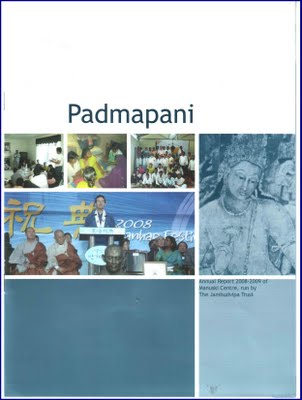
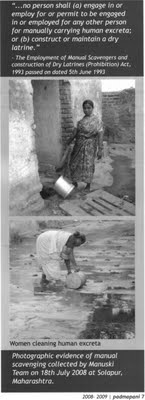
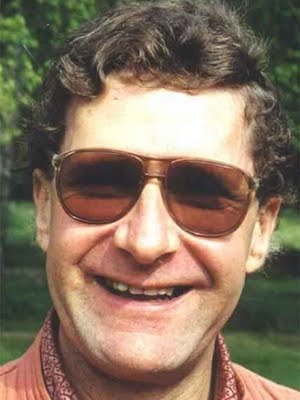

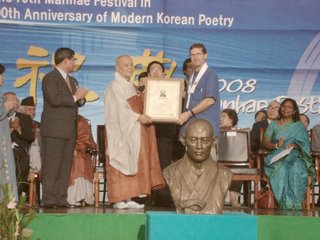
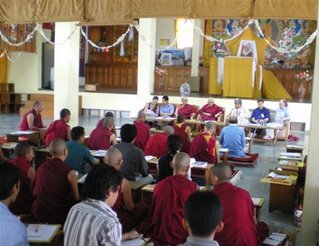
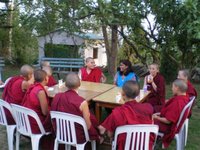
 rss
rss